I have followed the directions in the django-ldap README and I cannot seem to get django-ldapdb to act like it's making an LDAP query. The following has been edited on a brand new instance of Django v.2.1.2 using with Python 3.7:
Changes to settings.py:
DATABASES = {
'default': {
'ENGINE': 'django.db.backends.sqlite3',
'NAME': os.path.join(BASE_DIR, 'db.sqlite3'),
},
'ldap': {
'ENGINE': 'ldapdb.backends.ldap',
'NAME': 'ldaps://my.server',
'USER': 'cn=some user',
'PASSWORD': 'somePassword',
}
}
DATABASE_ROUTERS = ['ldapdb.router.Router']
New models.py:
class MyPerson(ldapdb.models.Model):
base_dn = "ou=people,dc=ucsf,dc=edu"
object_classes = ['person', 'myPerson]
uid = fields.IntegerField(db_column='uid')
displayname = fields.CharField(db_column='displayname')
eid = fields.CharField(db_column='eid')
def __str__(self):
return str(self.uid)
def _unicode__(self):
return str(self.uid)
The query in my view. First I tried:
result = MyPerson.objects.filter(uid=99894)
Then I tried:
result = MyPerson.objects.using('ldap').filter(uid=99894)
Running the Django dev server in PyCharm's debugger I can see that result receives a QuerySet with a message of:
Unable to get repr for <class 'django.db.models.query.QuerySet'>
What do I mean by "message". Honestly I'm not sure, but the debugger shows this:
Also, it seems that though the db member of the QuerySet is 'ldap', and the query member shows an SQL query, not an LDAP filter. As I traced the HTTP request through the URL routing, to the view, to the query, and then the result, I never once saw it make any sort of LDAP-related call. For good measure I mangled the LDAP bind password and I don't get a bind error. Pretty sure I'm missing something that lets Django know I want to work with LDAP at this point... I just don't know what that is.
